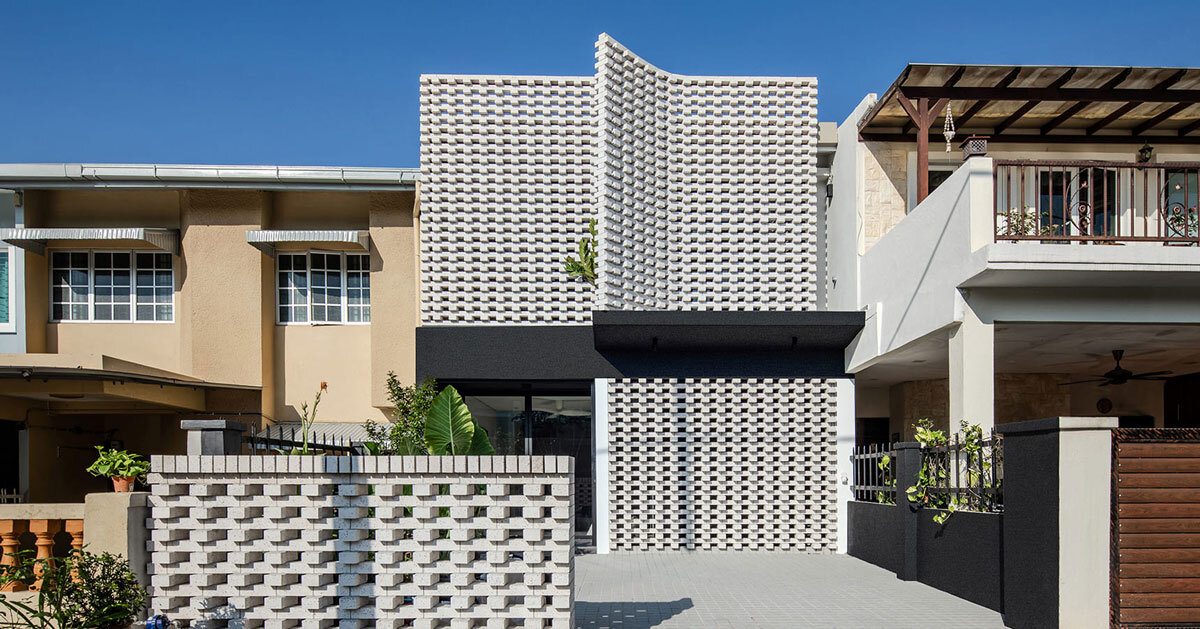
"Teresformasi is a renovation project of a 1980s terrace in Melawati, Kuala Lumpur, designed by 6IX Design Office. Positioned near the Bukit Tabur Quartz Ridge, the project reinterprets a common intermediate-lot terrace home through spatial reprogramming and material continuity. Its name combines teres (terrace) and transformasi (transformation), reflecting its focus on updating an existing typology for contemporary Malaysian living. The design centers on an airwell that acts as the primary organizing element, distributing daylight and natural ventilation throughout the interior."
"Circulation and room arrangements are structured around this void, employing a clear served-and-servant hierarchy. Communal areas such as the living room and kitchen are configured as open, interconnected spaces, while private and service areas remain compact and efficient. Teresformasi renovates a 1980s terrace house in Melawati, Kuala Lumpur | all images courtesy of 6IX Design Office 6IX Uses Brick, Timber, and Concrete for the transformation"
"The design team selects the materials for both their environmental performance and spatial coherence. Brick, timber, and concrete form the main palette, with recycled chippings incorporated into the brickwork to create a terrazzo-like finish. These materials allow for durability and contribute to passive thermal moderation. A secondary facade skin further reduces heat gain while maintaining access to natural light. The project maintains the character of the original terrace-house form while addressing contemporary functional requirements."
Teresformasi renovates a 1980s intermediate-lot terrace in Melawati, Kuala Lumpur, reprogramming spaces to suit contemporary Malaysian living. An airwell serves as the primary organizing element, distributing daylight and natural ventilation while structuring circulation and the served-and-servant hierarchy. Communal spaces such as the living room and kitchen are open and interconnected, whereas private and service areas remain compact and efficient. Brick, timber, and concrete form the main material palette, with recycled chippings in the brickwork creating a terrazzo-like finish and contributing to passive thermal moderation. A secondary facade skin reduces heat gain while admitting natural light, preserving the terrace-house character.
#terrace-house-renovation #airwell-ventilation #brick-timber-concrete-palette #passive-thermal-design
Read at designboom | architecture & design magazine
Unable to calculate read time
Collection
[
|
...
]